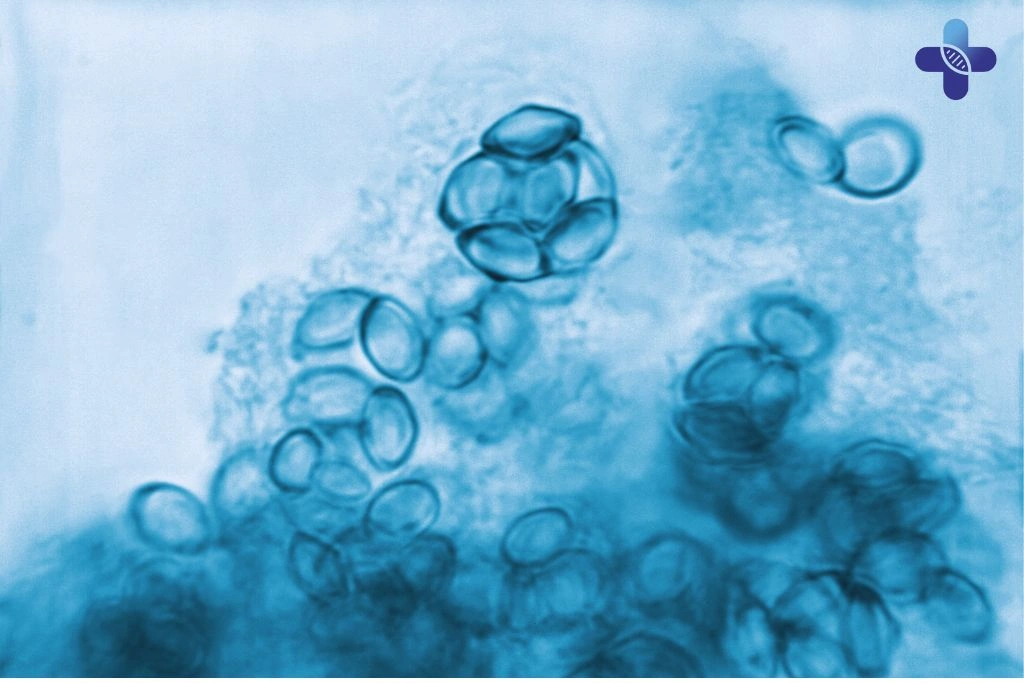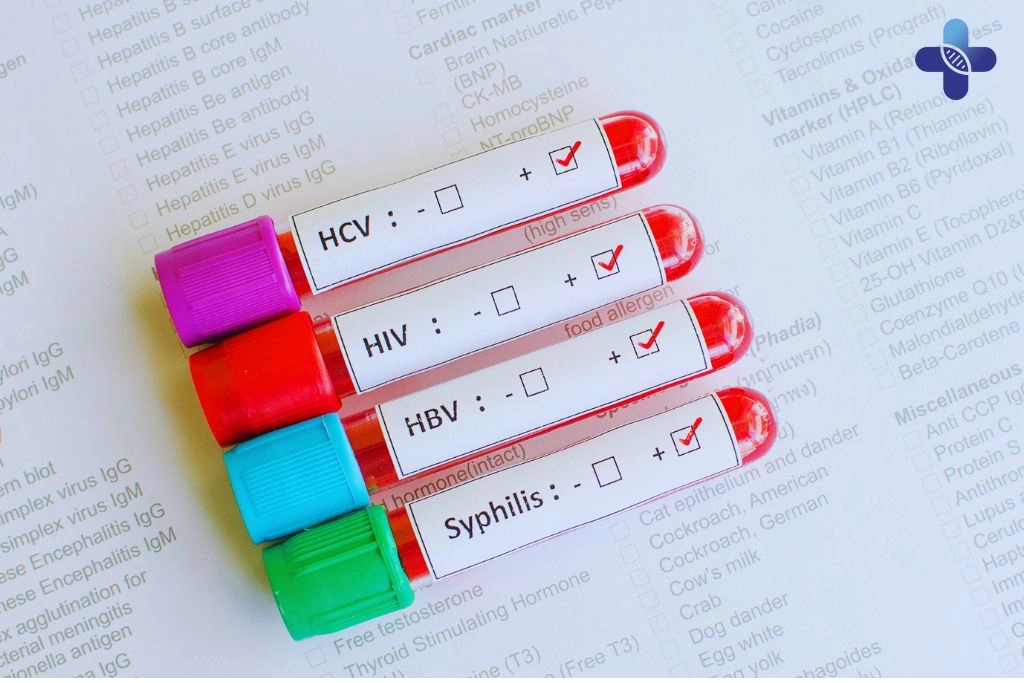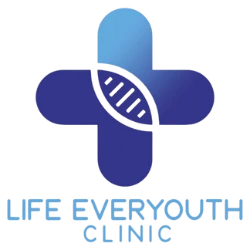Bali is a top tourist destination known for its vibrant nightlife and social scene. However, with an increase in casual encounters, the risk of sexually transmitted diseases (STDs) is also a growing concern. Understanding the common STDs in Bali, their symptoms, and available treatment options is crucial for maintaining your health. In this article, Life Everyouth Bali provides essential insights into STDs in Bali and how you can protect yourself.

Understanding Sexually Transmitted Diseases in Bali and How to Protect Yourself
Bali’s thriving tourism and nightlife scene increase the risk of sexually transmitted diseases (STDs), making awareness and prevention essential. Many STDs, such as chlamydia, gonorrhea, and syphilis, can go unnoticed due to mild or no symptoms, leading to severe health complications if untreated. Practicing safe sex, using protection, and getting vaccinated for HPV and Hepatitis B are crucial steps in reducing risks. Regular STD screenings at Life Everyouth Bali ensure early detection and timely treatment, providing both locals and tourists with confidential and professional healthcare services.
Common Sexually Transmitted Diseases in Bali
HIV
Human Immunodeficiency Virus (HIV) in bali attacks the immune system, weakening the body’s ability to fight infections and diseases. If untreated, it progresses to Acquired Immunodeficiency Syndrome (AIDS), a life-threatening condition. Though there is no cure, antiretroviral therapy (ART) helps manage the virus, allowing individuals to lead healthy lives while reducing the risk of transmission.
Acquired Immunodeficiency Syndrome (AIDS) in Bali
Acquired Immunodeficiency Syndrome (AIDS) in Bali is the advanced stage of untreated Human Immunodeficiency Virus (HIV), marked by severe weakening of the immune system and vulnerability to opportunistic infections. At this stage, the body can no longer defend itself effectively against illnesses. While AIDS cannot be cured, early diagnosis and consistent antiretroviral therapy (ART) can prevent HIV from progressing to this stage. Life Everyouth Clinic Bali offers comprehensive HIV care, helping individuals manage their health and maintain a strong immune response.
Gonorrhoea
Gonorrhoea in bali is a bacterial infection that affects the genitals, rectum, and throat, causing painful urination, abnormal discharge, and, in some cases, no symptoms at all. If left untreated, it can lead to infertility and serious complications such as pelvic inflammatory disease (PID) in women and prostate inflammation in men. Antibiotic treatment is effective, but rising resistance to medication makes early detection essential.
Trichomonas
Trichomonas in bali is a parasitic infection that commonly affects the urogenital tract, leading to symptoms like vaginal discharge, genital irritation, and discomfort during urination or intercourse. Many men remain asymptomatic carriers, unknowingly spreading the infection. It is treatable with prescription medication, and early diagnosis prevents further complications.
Candida
Candida in bali, or yeast infection, is caused by an overgrowth of the Candida fungus, often leading to itching, swelling, and thick white discharge in women. Though not always classified as an STD, it can be triggered by sexual activity and a weakened immune system. Antifungal treatments effectively manage the infection, and maintaining good hygiene helps prevent recurrence.
Syphilis
Syphilis in bali is a bacterial STD that progresses in stages, beginning with painless sores, followed by rashes, fever, and, if untreated, severe damage to the heart, brain, and nervous system. It can remain dormant for years before causing life-threatening complications. Early detection through blood tests allows for successful treatment with antibiotics.
Herpes
Herpes in bali, caused by the herpes simplex virus (HSV-1 or HSV-2), results in painful blisters or sores around the mouth or genitals. The virus remains in the body for life, with periodic outbreaks triggered by stress or illness. While there is no cure, antiviral medications help reduce symptoms and lower the risk of transmission.

Ureaplasma Urealyticum
Ureaplasma urealyticum in bali is a bacterial infection that often exists harmlessly in the body but can cause complications when it overgrows. It may lead to urinary tract infections, infertility, or discomfort in the genital area. Antibiotic treatment effectively clears the infection when symptoms arise.
Chlamydia Trachomatis
Chlamydia trachomatis in bali is a silent bacterial infection that can cause serious reproductive health issues if left untreated. Common symptoms include abnormal discharge, pain during urination, and pelvic pain, though many cases remain asymptomatic. Routine testing and early antibiotic treatment help prevent long-term complications.
Mycoplasma Hominis
Mycoplasma hominis in bali is a bacterial infection that can disrupt the normal balance of the genital flora, potentially leading to bacterial vaginosis, pelvic inflammatory disease, or complications during pregnancy. While it may not always require treatment, antibiotics can help manage persistent infections.
Mycoplasma Genitalium
Mycoplasma genitalium in bali is an emerging bacterial STD that affects the urinary and reproductive tracts, causing symptoms like painful urination, genital discomfort, and inflammation. It is often mistaken for chlamydia or gonorrhoea, making accurate diagnosis essential. Some cases require specialized antibiotic treatment due to increasing resistance.
Neisseria Gonorrhoeae
Neisseria gonorrhoeae in bali is the bacteria responsible for gonorrhoea, a highly contagious STD that infects the mucous membranes of the reproductive and urinary tracts. If untreated, it can lead to severe reproductive health issues and increased susceptibility to other infections. Regular screenings and prompt antibiotic treatment are crucial for prevention.
Trichomonas Vaginalis
Trichomonas vaginalis in bali is a parasite that causes trichomoniasis, a common yet often overlooked STD. Symptoms include vaginal irritation, itching, and frothy yellow-green discharge, though many infected individuals show no signs. Since the infection increases susceptibility to other STDs, timely diagnosis and treatment with antiparasitic medication are important.
Hepatitis B
Hepatitis B in bali is a viral infection that affects the liver and spreads through sexual contact, blood transfusion, or sharing contaminated needles. It can cause liver inflammation, cirrhosis, and even liver cancer if left untreated. Vaccination is the best prevention method, and antiviral therapy helps manage chronic cases.

Protecting Yourself from STDs in Bali
While Bali is known for its vibrant nightlife and social scene, it’s important to stay mindful of sexual health risks. Sexually transmitted diseases (STDs) can be prevented with responsible practices and proactive healthcare measures. Here are essential tips to protect yourself from STDs while enjoying your time in Bali:
Use Condoms Consistently and Correctly
Condoms are one of the most effective ways to reduce the risk of STDs, including HIV, chlamydia, gonorrhea, and syphilis. However, they must be used correctly every time you engage in sexual activity. Some key reminders:
- Use new condoms for each act of vaginal, anal, or oral sex.
- Ensure the condom is stored in a cool, dry place to maintain its integrity.
- Never use oil-based lubricants (such as lotions or Vaseline) with latex condoms, as they can cause breakage.
- If engaging in oral sex, flavored condoms or dental dams provide an extra layer of protection against STDs like herpes and syphilis.
Get Vaccinated for HPV and Hepatitis B
Certain STDs can be prevented through vaccination, making them a crucial step in long-term sexual health.
- HPV Vaccine: Protects against the most dangerous strains of human papillomavirus (HPV), which can lead to genital warts and cervical, anal, or throat cancer.
- Hepatitis B Vaccine: Prevents Hepatitis B, a viral infection that affects the liver and can lead to chronic complications. It’s especially important for travelers or those with multiple partners.
If you haven’t been vaccinated yet, Life Everyouth Bali offers HPV and Hepatitis B vaccinations as part of their preventive care services.
Limit the Number of Sexual Partners & Engage in Open Communication
Your risk of contracting an STD increases with multiple sexual partners, especially if protection isn’t used consistently. While everyone’s lifestyle is different, maintaining mutual exclusivity or reducing the number of partners can significantly lower the risk. Additionally, open and honest communication about sexual health with your partner(s) is essential.
- Before engaging in intimacy, discuss recent STD testing history.
- Be aware that some STDs (like herpes and HPV) can spread even with condom use, so discussing potential risks is key.
- Don’t assume someone is STD-free just because they “look healthy.” Many infections, including chlamydia and HIV, can be asymptomatic for long periods.
Schedule Regular STD Screenings at Life Everyouth Clinic
Many STDs don’t show symptoms, meaning you can unknowingly carry and spread infections. Routine STD testing in Bali is essential for early detection and treatment.
- If you are sexually active, get tested at least once a year.
- If you have multiple partners, engage in casual encounters, or have had unprotected sex, you should get tested every 3–6 months.
- Testing is especially crucial if you experience unusual symptoms such as genital sores, painful urination, or abnormal discharge.
Life Everyouth Bali offers confidential STD screenings with fast and reliable results. Whether you are a resident or a traveler, prioritizing your sexual health ensures peace of mind.

Conclusion of STDs in Bali: What You Need to Know
Sexually transmitted diseases are a serious health concern in Bali, but they are preventable and treatable with proper precautions. If you are sexually active, regular testing and safe practices are crucial for maintaining your health. Life Everyouth Bali offers comprehensive STD testing and treatment services to ensure your well-being.
Frequently Asked Questions (FAQs) of STDs in Bali: What You Need to Know
Where can I get tested for STDs in Bali?
Life Everyouth Bali offers private and professional STD testing in bali with rapid and accurate results. Our clinic provides a full range of screening and treatment services for common sexually transmitted infections, ensuring a discreet and comfortable experience.
How often should I get tested for STDs?
Routine STD testing is recommended at least once a year for sexually active individuals. If you have multiple partners, engage in unprotected sex, or experience symptoms, testing every 3 to 6 months is highly advised to maintain optimal sexual health.
Can STDs be cured?
Certain bacterial infections such as chlamydia, gonorrhea, and syphilis can be completely cured with antibiotics if treated early. However, viral infections like herpes, HPV, and HIV do not have a cure but can be effectively managed with antiviral medications to reduce symptoms and prevent transmission.
What are the symptoms of STDs?
STD symptoms vary by infection, but common signs include burning sensation during urination, abnormal genital discharge, sores, blisters, itching, pain during intercourse, and flu-like symptoms. Some infections, such as chlamydia and HPV, may show no symptoms at all, making regular screening crucial.
Is STD testing in Bali confidential?
Yes, Life Everyouth Bali guarantees full confidentiality for all STD tests and treatments. Your results are private and shared only with you, ensuring discreet and professional medical care without judgment.
Can I get an STD from oral sex?
Yes, certain STDs, including herpes, gonorrhea, syphilis, and HPV, can be transmitted through oral sex. Using dental dams or condoms can significantly reduce the risk of infection.
How can I prevent getting an STD in Bali?
The best ways to prevent STDs include consistent condom use, getting vaccinated for HPV and Hepatitis B, limiting sexual partners, and undergoing regular STD screenings. Practicing open communication with partners about sexual health is also essential.
Are there STD vaccines available?
Yes, vaccines for HPV and Hepatitis B are available at Life Everyouth Bali. These vaccines are highly effective in preventing high-risk HPV strains that can lead to cervical, anal, and throat cancers, as well as Hepatitis B, which can cause serious liver disease.
What should I do if I test positive for an STD?
If you test positive for an STD, seek immediate medical treatment, follow your doctor’s recommendations, and inform your recent sexual partners so they can get tested as well. Many infections are curable or manageable, so early intervention is key to preventing complications.
Can tourists access STD treatment in Bali?
Yes, Life Everyouth Bali provides STD testing and treatment for both locals and tourists. Whether you are visiting short-term or staying long-term, our clinic ensures that you receive professional medical care with the utmost privacy.
How can I know if I have a sexually transmitted disease (STD)?
Many STDs show no symptoms in the early stages, which makes regular testing the most reliable way to know your status. If you experience unusual discharge, sores, itching, pain during urination, or other changes in your reproductive health, visit Life Everyouth Clinic Bali for confidential STD testing and professional medical consultation.

